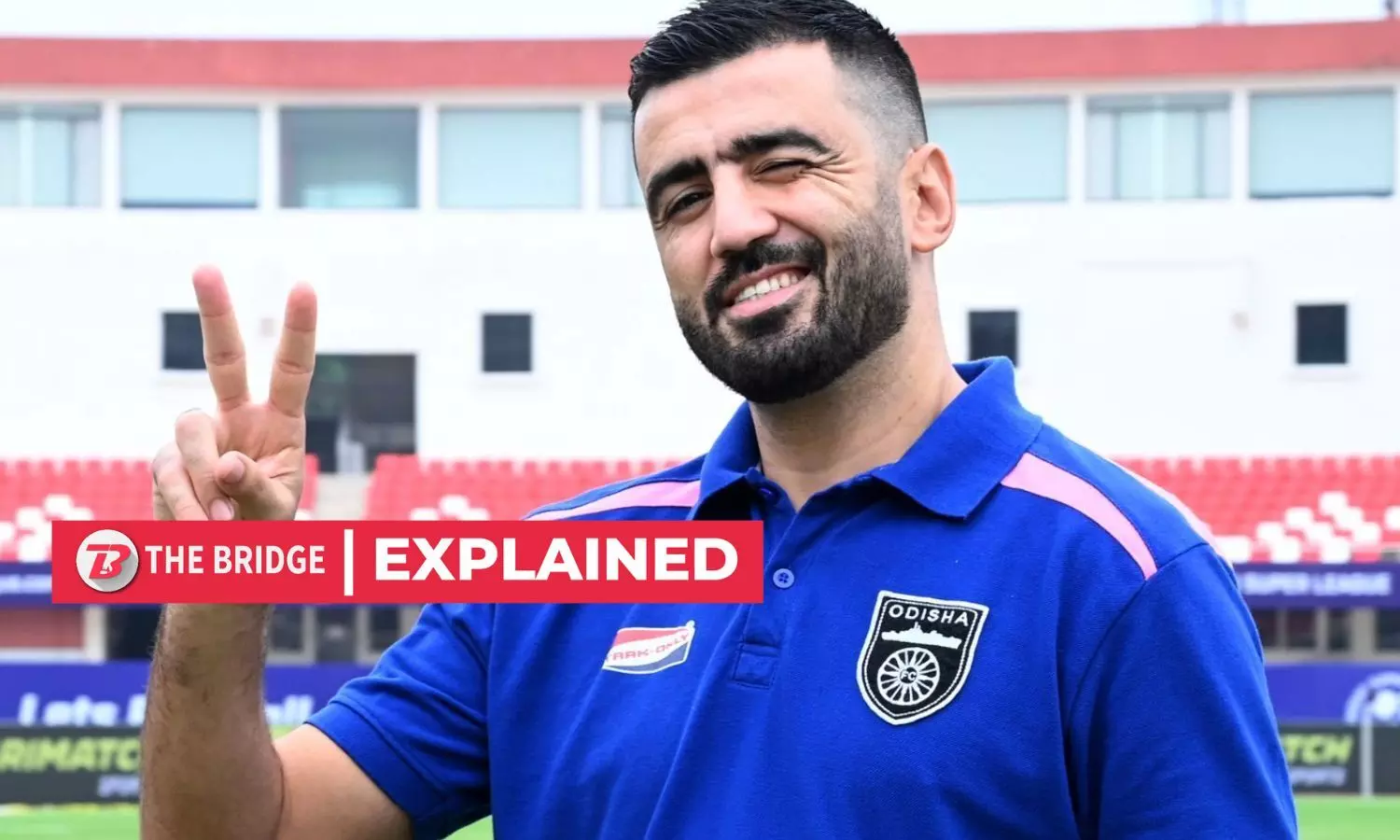Football
Explained: Potential consequences of Ahmed Jahouh leaving Odisha FC without notice
The club may escalate the case to FIFA's Dispute Resolution Chamber (DRC), which could prevent him from signing with another club until a verdict is reached.

Odisha FC has been left in a state of uncertainty after Moroccan midfielder Ahmed Jahouh abruptly departed the club without prior notice.
The club, in an official statement, expressed its disappointment over what it termed a "serious breach of contract."
"Ahmed Jahouh has unilaterally left the club without providing any reason or information to the club," the club stated. "The club considers this a serious breach of contract and is considering appropriate action. Further details will be communicated once the due process is followed."
Jahouh, a seasoned midfielder with a strong presence in Indian football, joined Odisha FC in the 2023 season and was expected to play a key role in their campaign. His sudden departure raises questions about internal issues and potential disputes that may have led to his exit.
The club is exploring legal options to address the situation and ensure contractual obligations are met.
What next?
If Odisha FC pursues the matter, Jahouh could face financial penalties or even sporting sanctions.
The club may approach FIFA's Dispute Resolution Chamber (DRC) to seek compensation, potentially preventing Jahouh from signing with another club until the issue is resolved.
If FIFA rules in Odisha FC's favor, he could also face a suspension as well as could be subject to a financial settlement or a significant playing ban.
Jahouh's case could fall under different contractual categories:
Just Cause Termination: If Jahouh proves he had valid reasons for leaving, such as unpaid wages or contract breaches by Odisha FC, he could walk away without facing major penalties.
Without Just Cause: If he terminated his contract without a valid reason, he could face sanctions, including fines and suspension.
Protected Period Breach: If Jahouh left during the first three years of his contract (or two years if he is over 28), FIFA could impose heavier sanctions, including bans and compensation fees.
Outside the Protected Period: If he left after the protected period, penalties would likely be less severe, possibly limited to financial compensation.
Football history has seen similar cases, such as Ariel Ortega's €11 million fine and four-month ban in 2003 after leaving Fenerbahçe without permission, Philippe Mexès’ suspension and €7 million fine for breaking his contract with Auxerre in 2004, and Adrian Mutu’s €17 million damages payment to Chelsea in 2004 after his dismissal for disciplinary reasons.
These precedents indicate that Odisha FC could have a strong case if they choose to escalate the issue legally.
Meanwhile, Jahouh’s next move remains uncertain, particularly if he attempts to join another club soon.
The resolution of this case will have lasting implications for both Odisha FC and Jahouh’s professional career.
